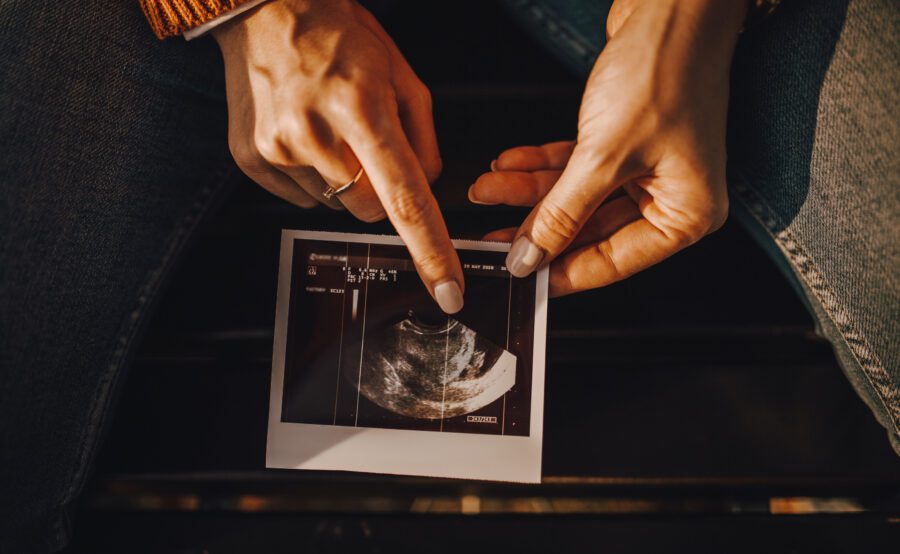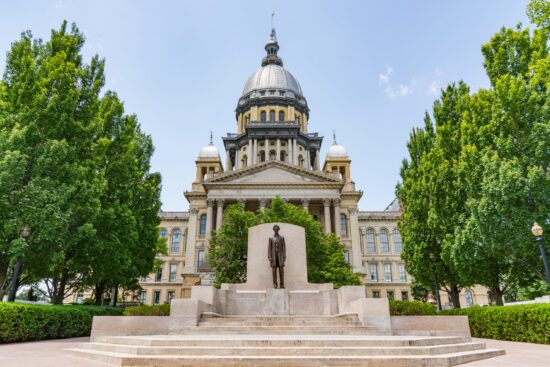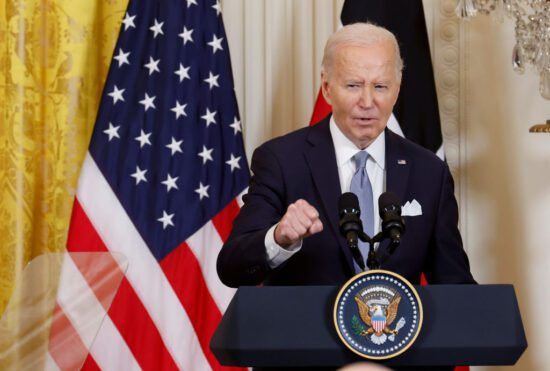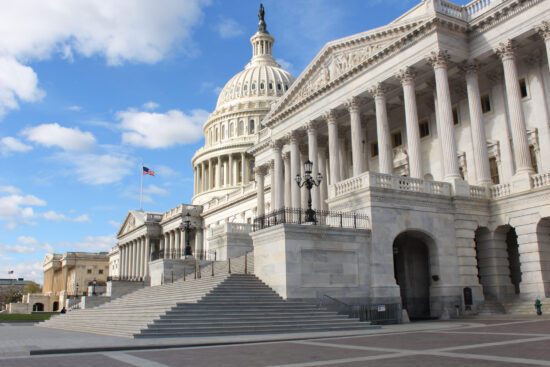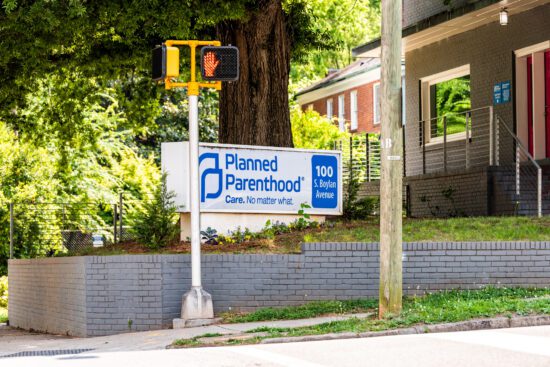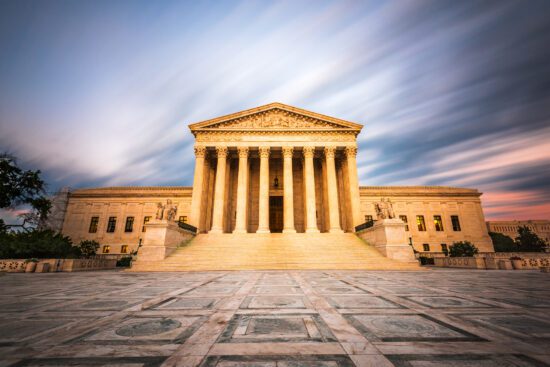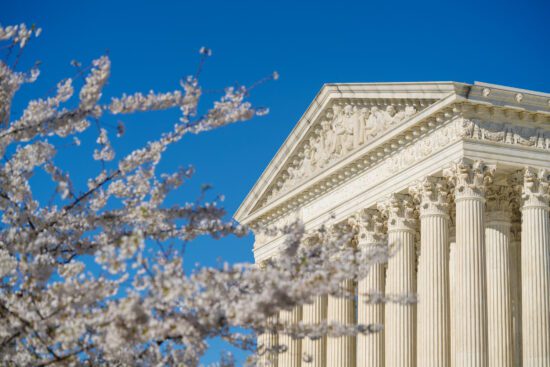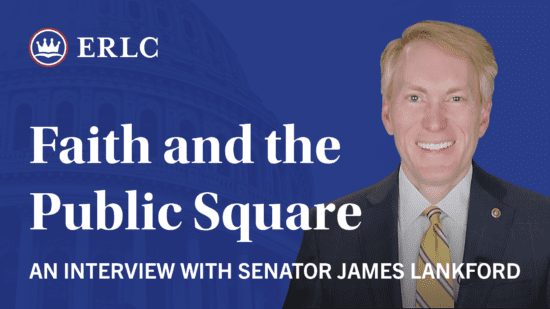The “Hyde family” of amendments are provisions included in annual government spending bills, known as appropriations bills, that prevent the use of federal funding for abortions. In recent years, the Biden administration has sought to bypass this group of provisions through funding the cost to travel across state lines for the purpose of obtaining an abortion, also known as abortion tourism.
The ERLC has continually advocated to retain and expand these vital pro-life protections by opposing the undermining of these policies by the Biden administration and supporting legislation such as the No Taxpayer Funding for Abortion Act.
What is the Hyde Amendment?
The Hyde Amendment is a provision that prohibits federal money from being used to pay for abortions. Government spending bills designate the budgets and spending stipulations for various federal agencies, directing how taxpayer dollars are spent.
The Hyde Amendment initially passed as a response to the Supreme Court’s decision in Roe v. Wade. It was introduced by Rep. Henry Hyde (IL) in 1976 to ensure Medicaid funds are not used to fund abortion procedures.
Originally, this amendment was applied to the Labor and Health and Human Services appropriations bill. Since then, its provisions have also been extended to other federal programs through similar language in other legislation. In doing so, these amendments placed restrictions on other agencies, including:
- the Indian Health Service,
- Medicare, and
- the Children’s Health Insurance Program (CHIP).
Since this provision is an amendment, it must be renewed annually when government spending bills are negotiated and approved, meaning that there is always a chance that this vital provision will not be included each year.
What is abortion tourism?
The term ‘abortion tourism’ refers to the practice of traveling across state lines in order to obtain greater access to abortion. Because the restrictions placed on abortion vary heavily by state, this practice typically involves a woman traveling from a state with pro-life legal restrictions to one where abortion procedures are significantly less regulated. A prime example of this practice was on display in late 2021 after the passage of the Texas Heartbeat Act, when thousands of Texan women traveled to nearby states to obtain abortions.
After the overturning of Roe with the 2022 Supreme Court decision in Dobbs v. Jackson Women’s Health Organization, the concept of a constitutional right to abortion was rejected and the question of abortion access was remanded to “the people and their elected representatives.” Since the Dobbs decision, many states have implemented restrictions on abortion. These have ranged from total bans to those dependent on gestational duration, while other states have refused to restrict abortion access at any gestational period. The ERLC is keeping a close eye on the wide array of state policies being considered and implemented in our 2024 Abortion State Ballot Initiatives Tracker.
How has the Biden administration attempted to promote abortion tourism?
The use of federal funding for the coverage of abortion-related travel and leave is clearly in violation of the Hyde Amendment. However, the Biden administration has sought to circumvent such restrictions through federal rulemaking. These federal rules are legally binding regulations and guidance for use by government agencies and departments to implement and enforce the laws passed by Congress. Through these regulatory agencies, the executive branch interprets new legislation passed by Congress and establishes how these laws will be applied in practice.
In 2022, President Biden signed the “Protecting Access to Reproductive Health Care Services” order to expand federal efforts to secure abortion access. This executive order has been used by various federal agencies to push pro-abortion policies that expand access to the abortion pill and pay for abortion travel.
For example, the Department of Veterans Affairs (VA) proposed and finalized a rule in 2024 that allows for the use of federal funds to cover abortion-related expenses for veterans and other VA beneficiaries. This would include direct coverage of abortions in situations where the life or health of the mother is at risk, as well as instances of rape or incest. The rule would also extend to travel costs for those seeking abortions.
The Office of Refugee Resettlement (ORR) also proposed regulations in November of 2023 that included the allocation of funding toward abortion-related travel for minors through the Unaccompanied Child (UAC) program. The ERLC submitted public comments criticizing the proposed ORR regulation late last year:
“As the ERLC has repeatedly advocated, abortion-related travel is inherently included as a prohibited measure under the Hyde Amendment since doing so subsidizes the abortion industry with federal funding. There is no meaningful argument the ORR can make to separate abortion from abortion-related travel, and this type of argument has not proven successful in circumventing other federal appropriations restrictions.”
This rule went into effect on July 1, 2024. Unfortunately, although the ORR responded to public comments critiquing these regulations through the inclusion of conscience protections for ORR employees and faith-based providers, coverage of abortion tourism for minors through the UAC program remains.
Why does the Hyde Amendment affect Southern Baptists?
The Hyde Amendment is crucial in protecting the lives of vulnerable preborn children and in continuing to uphold a culture of respect for individual conscience protections within the federal government.
The Hyde Amendment is incredibly effective in saving the lives of preborn children. As of 2023, the Charlotte Lozier Institute found that the Hyde Amendment has saved over 2 1/2 million preborn lives since it was first implemented in 1976. Even with the overturning of Roe, which led to many states implementing heavy restrictions on abortion, Hyde is still crucial for saving preborn lives in states that do not meaningfully regulate abortions.
In addition to protecting the lives of preborn children, Southern Baptists also have a long history of supporting robust conscience protections. As laid out in the Baptist Faith and Message 2000, we believe that “God alone is Lord of the conscience, and He has left it free from the doctrines and commandments of men which are contrary to His Word or not contained in it.” The freedom of conscience is an inalienable right, and as such the state may not infringe upon it.
The Hyde Amendment and its progeny maintain this principle by ensuring that Christians and other pro-life taxpayers are not forced to violate their consciences by providing monetary support for the abortion industry.
What is the ERLC doing to oppose federal funding of abortion and support conscience protections?
Through our appropriations advocacy work, the ERLC has demonstrated a resolve to preserve and expand Hyde-family protections. For example, we sent letters to the Congressional Armed Services Committees on Sept.14, 2023, and the Congressional Appropriations Committees on Sept. 19, 2023, to advocate against taxpayer funding for abortion and abortion tourism in the National Defense Authorization Act (NDAA) and in government funding.
The ERLC also strongly supports the No Taxpayer Funding for Abortion Act, a piece of proposed legislation that would permanently codify the Hyde Amendment. With the passage of this Act, Hyde would no longer be a year-by-year rider in need of constant renewal. Thus, its protections for preborn lives and individual conscience objections would be enshrined in federal law. Advocacy for the No Taxpayer Funding for Abortion Act is a primary objective of the ERLC, as evidenced by its inclusion in our 2024 Public Policy Agenda.
The ERLC will continue to advocate for the spirit of the Hyde Amendment and its protection of both preborn life and individual freedom of conscience. We will also continue striving for Hyde protections to be applied accurately in federal rulemaking as related to abortion-related travel costs. We will continue to pray for and work toward a future where abortion is made both unthinkable and illegal.



